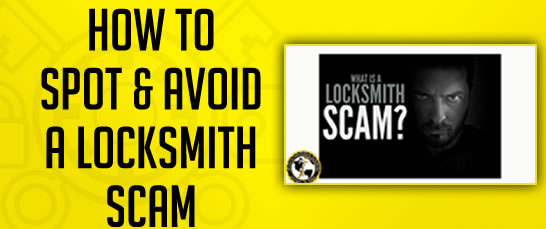What is a Locksmith Scam?
Locksmith scams are online scams which target home and vehicle owners when they require emergency assistance or our trapped in vulnerable situations.
Lead collectors operating from remote call centers build fake websites for locksmith companies that do not exist offline and get themselves listed on Google Directories with lucrative offer prices for availing locksmith services. Once the listings are live, the scammers use numerous fake Google accounts to produce fake ratings and reviews, for the locksmith services that have been listed to appear in Google’s search engine. In an emergent situation, you just look at an affordable price and tend to opt for the service immediately, but when the technician visits your house, you’re charged an amount, way more than the price shown up front.
5 Signs You Hired A Fake Locksmith
If you have a slight idea that you’ve hired a locksmith scam, watch out for these signals:
1. You will not be informed about a fixed price. The service providers will cook a story and tell you that the price will depend on the time, technique and ease of opening the lock.
2. A fraudulent locksmith will not carry an ID card or wear company uniform.
3. The company customer support will not mention their company name anywhere in the conversation.
4. A fake locksmith will be uncomfortable with online payments and will insist on taking cash.
5. The scammer may not be able to open your lock quickly and end-up drilling the same. He may also tell you that your lock is password protected and replace it with a standard lock.
Useful Tips to Protect Yourself from Fraud Locksmiths
To avoid a locksmith scam from getting you, make use of these helpful tips and things to remember while choosing a locksmith service near you.
1. Do a thorough background check before hiring
Once you’ve selected a locksmith service, initiate a full-proof verification process before hiring them. Check the authenticity of their address, registered company name, and license.
2. Expect a company name from the call-center executives
If the call-center manager starts the conversation with a generic phrase like “Locksmith Services”, then begin your grilling session. Ask for the company name and other business details.
3. Check ID proof and certification on arrival
Once the locksmith arrives, check his ID card and professional certificate before he starts the job.
4. Ask for a written estimate and authentic invoice
Ensure that you ask for a written estimate before beginning the service and a detailed invoice with the company stamp and letter head once the job is over.
5. Don’t let the locksmith drill your lock
If the locksmith insists on replacing the existing lock and drilling the door, ask him to stop the service immediately.
6. Inform local law enforcement agencies
To keep a check on locksmith scams, local law enforcement agencies have set up online locksmith verification channels that use local retired law enforcement officers, and our existing legal locksmith members to help them in establishing genuine locksmiths. Alternately, you can also contact your local police.


